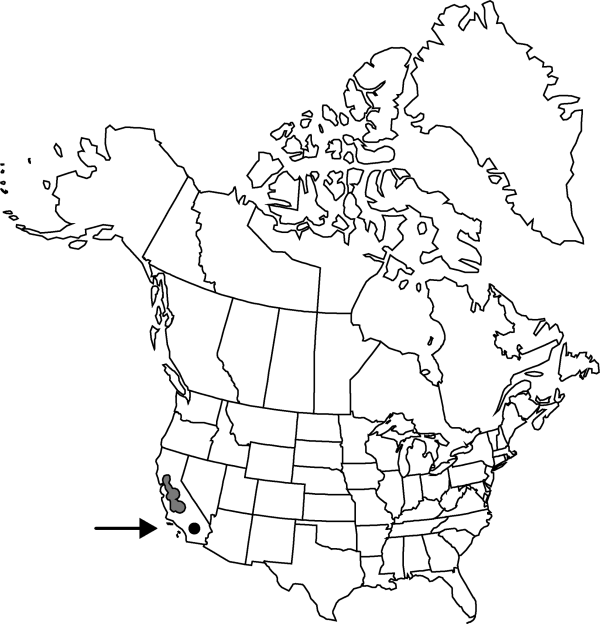Atriplex coronata
Proc. Amer. Acad. Arts 9: 114. 1874.
Herbs, erect or decumbent, 0.5–6 dm; branches terete, fructiferous almost to base, scurfy when young. Leaves alternate, subsessile or proximal short petiolate; blade ascending, oblong, oblong-ovate, or lanceolate to elliptic, 5–40 × 2–10 mm, thin, base acute to obtuse, margin entire, apex acute to acuminate. Flowers of both sexes in small axillary glomerules, 5-merous. Fruiting bracteoles almost sessile, broadly cuneate, 2–5 × (2–)2.5–5 mm, united to summit, truncate at summit, sides smooth or obscurely tuberculate. Seeds light brown to amber, 1–1.5 mm. 2n = 36.
Distribution

Calif.
Discussion
Varieties 3 (3 in the flora).
Although placed within the Atriplex argentea species complex by P. C. Standley (1916), this taxon appears more nearly allied to A. cordulata, differing mainly in leaf shape, round-ovate or deltoid-ovate to elliptic or lanceolate (not ovate to cordate-ovate), and markedly tuberculate faces of the fruiting bracteoles.
Selected References
None.
Lower Taxa
Key
| 1 | Stems ± erect; body of fruiting bracteoles ± semicircular in profile, compressed or ± spheric; tubercles dense; marginal teeth ± equal. | Atriplex coronata var. notatior |
| 1 | Stems decumbent to ascending; body of fruiting bracteoles approaching circular or flabellate in profile, ± compressed; tubercles usually few; marginal teeth unequal | > 2 |
| 2 | Fruiting bracteoles 2-4 mm; basal branches and leaves typically opposite. | Atriplex coronata var. vallicola |
| 2 | Fruiting bracteoles (2-)4-5 mm; basal branches and leaves typically alternate | Atriplex coronata var. coronata |